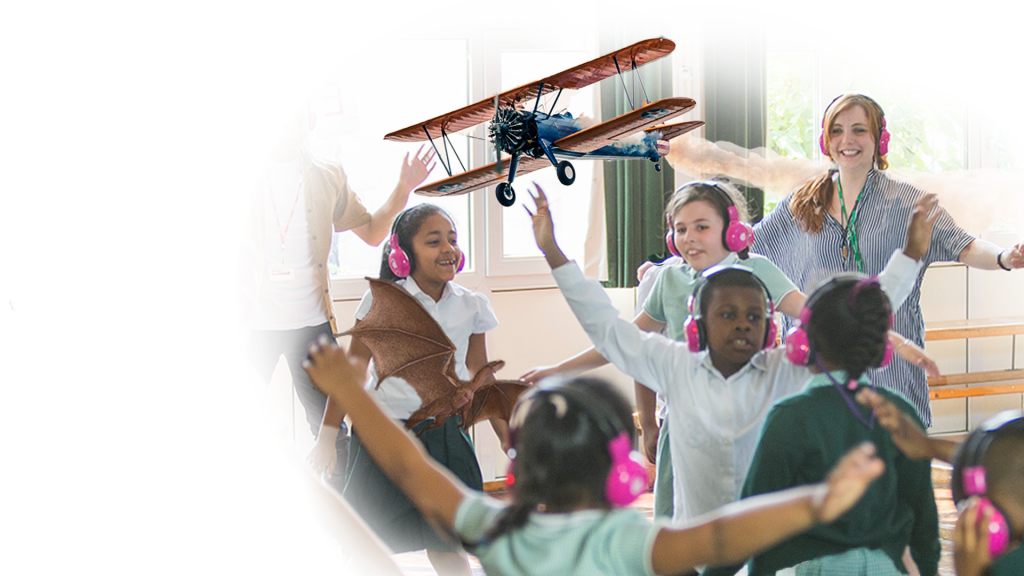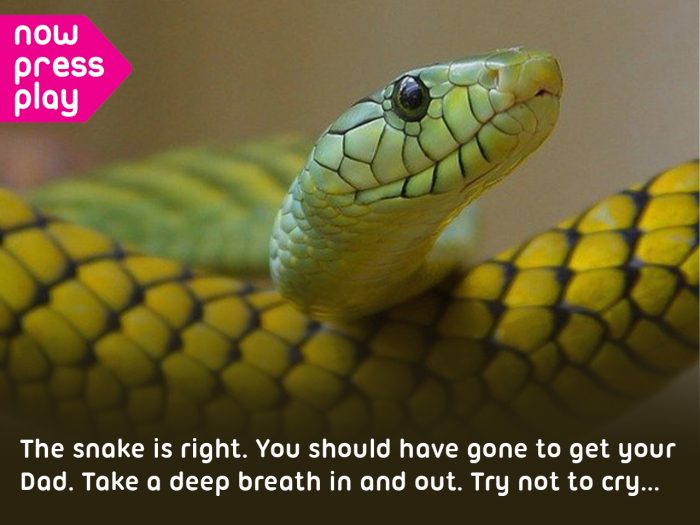
Schools have had to adapt to a rapidly changing landscape during the pandemic. Find out from our panel of expert teachers and educators how they are approaching online safety alongside the challenges of teaching remotely. We’ve curated a list of resources, key takeaways and included the recording to make it even easier for you to access their insights. You’ll leave feeling inspired with a new perspective on online safety.
Contents:
Webinar Recording:
Webinar Guest Speakers:
 Katy Potts – Computing, Digital and Online Lead for Islington
Katy Potts – Computing, Digital and Online Lead for Islington
Katie works with a large group of Edtech and education organisations, she organises termly Leaders’ events, ‘TeachMeets’ and Community celebrations to maximise partnership and good practice with a shared vision of equipping young people with the digital skills to promote creativity, learning and career opportunities.
David Mordue – Deputy Head & Y5 teacher at Bishop Ian Ramsey CofE Primary School in County Durham
He is also Computing Lead, a role which he had at his two previous schools. He is particularly interested in using technology to engage children and how we can utilise the great tech resources we have to help push forward teaching and learning across schools.
Martin Bailey – Digital Enrichment Leader, Director & Lecturer
Martin has been a Primary School Teacher in the North East of England for over 20 years and currently works as Digital Enrichment Leader at Lanchester EP Primary School (Co.Durham), he is also Director of his own company (Animate 2 Educate) and is also a lecturer in primary computing at Durham University.
Dawn Hallybone – Chief Strategy Officer, 2Simple
Dawn helps schools maximise the benefits of online technologies to advance approaches to both teaching and learning, whilst improving outcomes for learners of all ages. Dawn has over 20 years teaching experience working in Junior schools across London in a range of roles including four years as Deputy Head and time as an acting head.
Online Safety Webinar Key Takeaways:
- How has the pandemic impacted your approach to online safety? What new technologies, philosophies have you had to take?
There’s been an incredible adoption of digital technology across education and the whole of society and online safety has come to the forefront for school leaders and governance with core school policy driven by the SLT. It looks like many things learnt in the pandemic are here to stay. In the Edtech industry, we’ve achieved more in the last nine months than we have in 20 entire years. - In today’s climate how do you encourage parental engagement with online safety? Are there any differences to the challenges/wins you had pre Covid?
Schools have got more creative with how they engage with parents. Twitter has been, in particular, a useful communication tool between home and school. Online workshops have taken over from inviting parents in. A greater understanding has grown between parents and teachers due to home learning. And the work is more visible with platforms like Class Dojo and Purple Mash being used at home. Teachers are still developing the balance of what “remote learning” should consist of, it doesn’t necessarily need to be “online learning” or “remote teaching” – it can be non-screen based work completed independently. The digital divide is an issue that rages on with number of devices in a household and there are many elements of digital strategy that still need to be coordinated at a national, regional and local authority level. - How can senior leadership teams ensure their curriculum is aligned with their remote learning strategy, from policies, safeguarding and inclusion through to implementation?
It’s always constantly evolving, as new technology develops or you introduce it, you need to introduce new or update existing policies. It can be worth tweaking almost weekly. The new PSRE framework puts a much greater emphasis on online safety and it’s realising that this plays a part across the whole curriculum and can be embedded in all subjects in quite a fun way at times. Such as looking at propaganda and fake news when teaching World War II. Reflect and keep it simple, try not to have too many platforms, and communicate it clearly to governors, staff and parents – be clear and consistent. - What is the biggest barrier to children applying critical thinking skills to online content?
Time. Giving teachers time and training to embed new technology and making time to have discussions with parents and children about what they’re doing online. Giving pupils time to explore and explaining fact checking, allowing them to unpick clues such as with the Tree Octopus website. In-generational information sharing about scams, influencer advertising and digital self-regulation can be a great way to motivate and build the community. Motivate embedding online safety into the teacher’s practices, it can be just making videos or engaging lessons through using animals or small clips or even making it part of a fun register. - What has been the effect on pupil/staff wellbeing and mental health over the last year?
Schools and teachers have done wonderfully to support their pupils academically but there is concern around the lack of social interaction with peers, such as the lack of opportunities for team games or the developing of fundamental skills like building relationships and sharing. It’s important not to get too bogged down in the 24/7 online life and step away from the social media highlight reels that don’t necessarily reflect the reality of other schools and other homes. But it’s important to remember children are also connecting and communicating in other ways through tech. Tech free Fridays or Wellbeing Wednesdays can be a great way to reduce screen time and also a break so that you can keep talking and support one another. - What’s key to the success of remote learning? / What have been key online safety considerations when designing it?
On lots of platforms the important features that actually enable things to be as safe as possible come with premium subscriptions. Schools need to think carefully about balancing platforms that are exciting while considering the safeguarding implications. Act quickly but research first and speak to experts and think about investing in premium services. Use what works for your school and school community but limit the number of platforms and give staff adequate CPD training before you expect them to use them – work together as a school community. Choose a platform for remote learning, one for communication and maybe one for check ins or live lessons. You could do training with PCTA (Parent, Community, Teacher Association) to reach out further and keep class WhatsApp groups’ etiquettes strong by showing them how to close down negative comments. Make remote learning fun and part of your culture. Families may not be familiar with new concepts so think and choose your remote learning topics carefully. Having a menu in the afternoon means your pupils feel an ownership and can choose something they feel is achievable for them.
Online Safety Webinar Resources List:
Safer Internet day is the 9th February and the theme is ‘Exploring Reliability in the Online World Inc. Fake News’ – if you could recommend a resource to support it what would it be?

- 2Simple – Parent guide: Exploring reliability in an online world. Designed for parents, free to download.
- 2simple – World Record attempt for Safer Internet Day 2021.
- National Grid for Learning – One stop shop: Online Safety & Safeguarding from LGfL DigiSafe: CPD, resources, policies & training.
- Use image editing tools or apps, such as Magic Eraser or the Snippet tool to manipulate images, and show how easily they can be changed online
- YouNewsed App – Create headlines and stories that look like they’re from newspapers for free.
- Common Sense Media – Entertainment and technology recommendations for families.
- The Guardian Founudation: NewsWise – Literacy news project to empower KS2 pupils to use critical thinking in the news.
- UK Safer Internet Centre’s Professional Online Safety Helpline.
- Zapato: Tree Octopus – Great resource for Upper KS2 when thinking about reliability (you can print it out as a reading comprehension).
- Martin Bailey’s (Animate2Educate) SATs-style reading comprehension linked to the “Tree Octopus” website above which he has kindly shared.
- Google: Be Internet Legends – Free online safety scheme for KS2 with an excellent section on reliability
- CyberSimple: Reality River – Fake news and reliability game with different scenarios.
- National Online Safety – David Mordue often uses their “top tips” posters to share with parents
- Kate Russell’s tips for fact-checking social media – For Islington schools and beyond (including ferrets!).
- Minecraft Education – Challenge to build the ISS in Minecraft
- Safer Internet Day Blog with free resources.
- Purple Mash – Free resources for Safer Internet Day.
- BBC: Own It – A site designed for 10 and 11 year olds to help them stay safe online.
now>press>play Online Safety Experiences:
When you click on a pop-up whilst playing online, you are sucked into the computer game. To escape, you must prove you’ve learnt how to stay safe online. Will you collect enough gold coins to get out, and will you ever make it back to your Dad?
When your best friend Jayden is mean to you at school, you share a secret of his with a ‘friend’ you meet online. Things quickly spiral out of control, and you find yourself being blackmailed by a stranger. Will Jayden’s secret be posted online, and will he ever forgive you?
If you haven’t already got now>press>play in your school, you can book a free trial through our website.
More free CPD Webinars:





